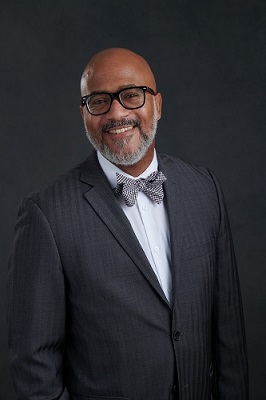HUSD offers a consortium model of CPE and draws upon the rich particularity of the School’s posture in the Washington, DC area. A consortium approach enables great diversity among care-seekers as well as approaches to serving through spiritual care. Students will either match with an existing community of service or work with their educator to have a clinical placement agreement fostered between their preferred site and the Center. Coming into this setting, Level I and Level II CPE students carry a significant amount of pastoral and professional responsibility. They essentially conduct the work of a chaplain within the parameters of their goals and growing edges and with the help and support of each other, the CPE supervisors, mentors, spiritual leaders, and volunteer ministers from their own communities. Therefore, students need a curriculum that grounds them in sensitivity to flexibility, diversity, spiritual care, pastoral listening skills, crisis interventions, and assertiveness. Learners can expect to embody care and skill with program staff, the HUSD community, their peers, and the spheres of service from which they come.
Including students in designing the curriculum is a pillar in our educational approach to adult learners. Supervisors emphasize trust and use students’ awareness of themselves to accomplish in curriculum development what will be most helpful for learning and growth. In the beginning of the unit, we spend time reviewing and discussing the ACPE standards, objectives, and outcomes. We invite students to consider topics they feel will help them meet the objectives, standards and outcomes, as well as their goals. The educator, having created a basic map of learning, adapts where needed. The hope is that the CPE students are encouraged to use their creativity, past experiences, and expertise to continually embrace authority, freedom, and opportunity. Helping to decide the curriculum, choosing timely media, giving voice to group activities and instruction, are direct pedagogical approaches to bring students into their roles as co-creators, spiritual caregivers, and leaders. This empowering engagement centers the students and their whole selves without compromising service as a center. It occurs simultaneously with the integration of core curriculum topics that have been chosen by the educator and affiliated faculty, namely the program’s Professional Advisory Group (PAG).
The written requirements for our programs at HUSD will ground students in their own hopes and goals for CPE. As a student-centered approach to learning, particularly within our School itself, our program acknowledges that the learning goals are different for different persons, and each unit of CPE adjusts to meet the different goals and needs of the current group of students. CPE is not a static field, but it is continually growing and developing. Educators and students learn more about ourselves as we learn in service with the people with whom we offer ministry. CPE students can expect to be called to a regular combination of action and reflection, service and consideration of that service and toward the aim of integrating what they know with who they are and who they are becoming as ministers.
The specific writing requirements for the unit of CPE is discussed during the orientation week for the program. Students are invited to make full possible use of these writing opportunities. If the student feels like what they are doing is not productive, it is important for them to talk to their educator regarding such.

